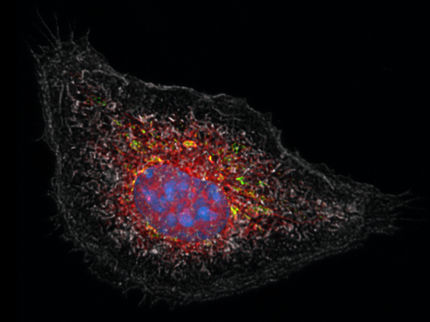BGU and University of Colorado Researchers Develop Novel “Smart” Drug that Targets and Reduces Site-Specific Inflammation
Ben-Gurion University of the Negev and University of Colorado researchers have used a highly novel approach to create a dynamic ‘smart’ drug that is attentive to the degree of the inflammation. The three describe a novel creative development of an anti-inflammatory engineered protein in the Journal of Immunology. The uniqueness of this anti-inflammatory molecule can be found in a singular property; while it is injected as a non-active drug, excessive inflammation will activate it. Most other anti-inflammatory agents do indeed effectively inhibit inflammatory processes, yet in a non-specific manner, and in areas that include sites of necessary normal inflammatory homeostasis. The beauty of this invention lies in the use of a known natural biological code.
“We mimicked a natural process that occurs during inflammation. The protein is actually a chimera comprised of two domains, both originating from the potent inflammatory cytokine family of IL-1. The first part of the protein holds the functional part of the molecule inactive, as occurs in normal living cells, and is connected to a potent natural inhibitor of IL-1. Upon encounter with inflammatory enzymes, the molecule is cleaved and the functional part becomes active”, explains Dr. Peleg Rider (pictured) of the Department of Clinical Biochemistry and Pharmacology, Faculty of Health Sciences.
The development is important since inhibition of inflammation in a non-specific manner reduces our natural ability to fight infections. This is a common side-effect of anti-inflammatory biologic therapeutics. When a non-specific agent is used, any patient who suffers from local inflammation might then be exposed to opportunistic infections at distant sites, such as lungs, risking, for example, tuberculosis. This risk is mainly of concern to immunosuppressed patients, as well as older patients and patients undergoing chemotherapy as part of an anti-cancer treatment course.
Dr. Rider, along with BGU’s Dr. Eli Lewis and Prof. Charles Dinarello of the University of Colorado demonstrated in a mouse model of local inflammation, that leukocytes, which infiltrate inflammatory sites, indeed activate the chimeric protein, which in turn reduces local inflammation. The activation of the protein correlated with the amount of inflammatory stimuli. Thus, a point that is highly relevant to clinical practice arises, according to which upon resolution of inflammation, the activation of the protein is also reduced, and side-effects are avoided.
The new chimeric molecule is protected by patent, owned by BGN Technologies, the technology transfer office of Ben-Gurion University and by the University of Colorado.
Organizations
Other news from the department science

Get the life science industry in your inbox
By submitting this form you agree that LUMITOS AG will send you the newsletter(s) selected above by email. Your data will not be passed on to third parties. Your data will be stored and processed in accordance with our data protection regulations. LUMITOS may contact you by email for the purpose of advertising or market and opinion surveys. You can revoke your consent at any time without giving reasons to LUMITOS AG, Ernst-Augustin-Str. 2, 12489 Berlin, Germany or by e-mail at revoke@lumitos.com with effect for the future. In addition, each email contains a link to unsubscribe from the corresponding newsletter.



















































